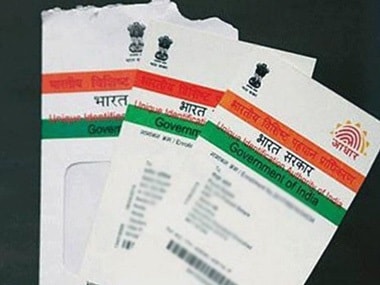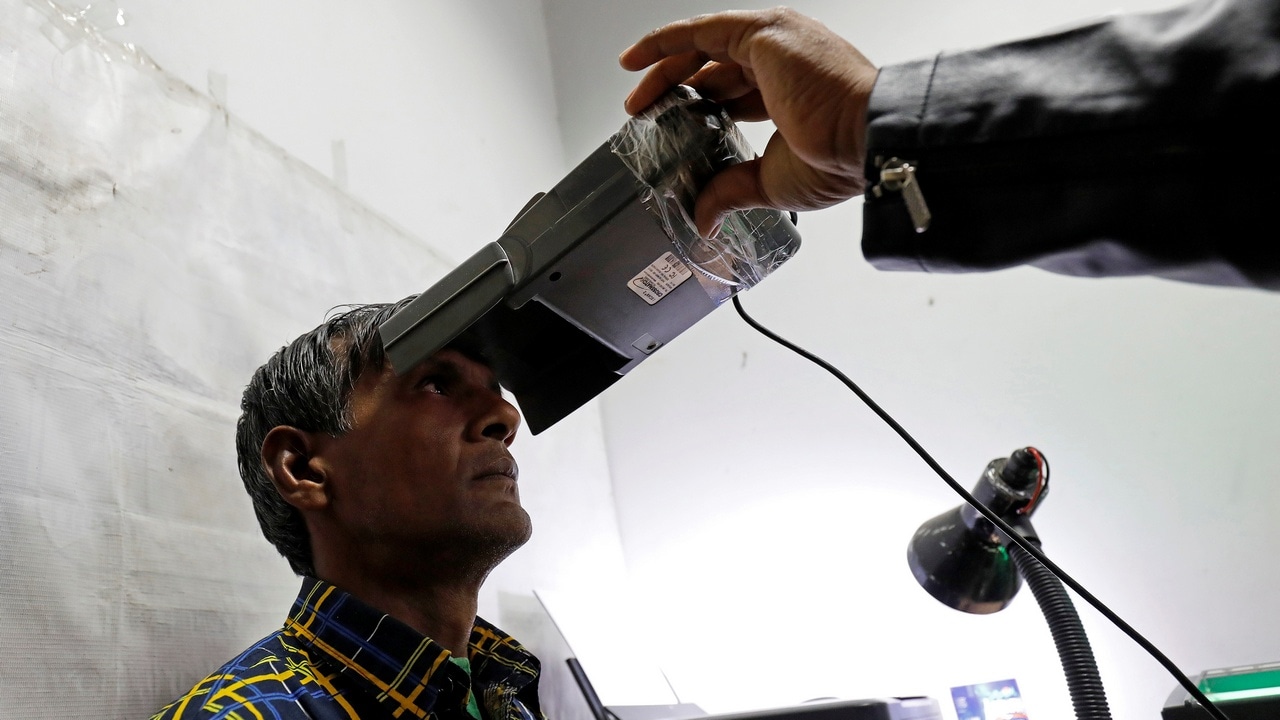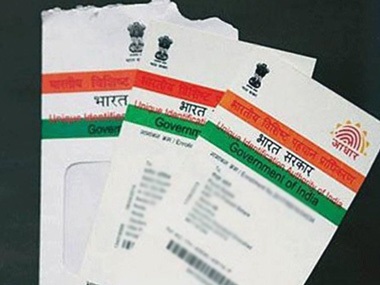Editor’s Note: This is a two-part series which will be taking stock of all the important arguments that have taken place so far in the Aadhaar Supreme Court hearings. Part 1 will focus on Days 1 to 15 and Part 2 (to be published tomorrow) will focus on Days 15 to 25 of the hearings. To read our complete coverage of the Aadhaar Supreme Court hearings, head over the list of stories at the end of the article. Hearings in the Aadhaar case before a Constitutional Bench of the Supreme Court have been in progress since 17 January 2018. In the fight for the fundamental right to privacy, among other rights, in relation to Aadhaar, several crucial arguments have been made. These will drive the next foundation stone of the right to privacy in India through the judgment of the Supreme Court. [caption id=“attachment_4292447” align=“alignleft” width=“380”]  Representational image. News18[/caption] Here is a recap of the last 25 days of hearings in 25 contentions. Part I lists the contentions made from Days 1 to 15, by senior counsels Shyam Divan, Kapil Sibal, Gopal Subramaniam and Arvind Datar. From Days 1 to 7, senior counsel Shyam Divan presented his arguments on behalf of the petitioners, presenting his stand that the ‘eminent domain’, or the right of the government to take public property for private use, did not extend to the human body. 1. The integrity of Aadhaar process and private party involvement: The lack of integrity in Aadhaar enrolment and authentication processes was the first issue raised. Issues of data collection in the absence of a law, inadequate qualifications of the personnel appointed, and the lack of reliability of biometric processes were asserted. The involvement of private parties who were without UIDAI control was also asserted as a concern. In support, the 49,000 blacklisted enrollers and findings of enrollers selling data collected for a price was cited.
2. On authentication via biometric information: The collection of biometric information , it was argued, violates a person’s fundamental right to bodily integrity. The open-ended definitions of biometric and core biometric information under the Aadhaar Act further points to unconstitutionality. Later, senior counsel Kapil Sibal argued that making the receipt of a governmental benefit conditional on the waiver of constitutional rights amounted to an unconstitutional condition. Senior counsel KV Vishwanath also pointed to another problem, that biometric authentication only resolved one issue with the diversion of subsidies — identity fraud. 3. Three tests for a valid restriction of privacy: Based on the Puttaswamy judgment, three tests were drawn out to validate an infringement of privacy: the existence of a law, legitimacy of purpose, and proportionality of the encroachment. The lack of a law for collection prior to 2016 was pointed to. The large-scale collection and storage of data, it was further argued, does not meet the test of proportionality. 4. Real-time surveillance from electronic footprints: Technical evidence was provided showing how the electronic footprint created via Aadhaar authentication records enabled real-time tracking of a person. In relation, issues of data aggregation and data sharing with the State Resident Data Hubs was also raised. Later, senior counsel Meenakshi Arora also argued on the chilling effect created by an apprehension of surveillance. Foreign judgments were cited which held that secret surveillance had the ability to undermine a democracy. More importantly, there is a need to protect the future generations from such surveillance. 5. Fundamental right violations cannot be validated in retrospect: On Section 59 of the Aadhaar Act which seeks to provide retrospective validity to Aadhaar, it was argued that the violation of a fundamental right could not be validated in retrospect. The Bench later observed that a law may supplement the absence of a law in retrospect, but it could not validate the breach of a law in retrospect. Senior counsel KV Vishwanath later argued that even if Section 59 was a valid validating provision, it could not declare compliance with safeguards for the infringement of privacy, when there was none. 6. Aadhaar based exclusion: Extensive arguments were made on the issue of Aadhaar-based exclusion, particularly that Aadhaar was causing more inclusion than exclusion. Incidents such as diversion of pensions and food grains, starvation deaths, etc. were pointed to. The State cited exception handling mechanisms under Section 7, but the petitioners countered that the situation on the ground could not be ascertained by looking at the law. The Bench also expressed concerns with the exclusion being caused on the ground. On Days 8 to 10, senior counsel Kapil Sibal argued the case, arguing that Aadhaar was like an RTI Act for the state and that the Aadhaar case was the most important case before the Courts since ADM Jabalpur. 7. Section 7 and 57: It was argued that Section 57 of the Aadhaar Act, which allows the use of Aadhaar to be extended by even private entities, could be constitutional only if it was interpreted to only establish another identity document. The Bench was sceptical, noting that the government’s interpretation was that it allowed other entities to make Aadhaar mandatory. Next, on Section 7 (which also establishes the link with Aadhaar as a money bill), it was argued that this was not essential to the Aadhaar Act, and the same purpose could be achieved by amending the Food Security Act. [caption id=“attachment_4348741” align=“alignnone” width=“1280”]  A man goes through the process of eye scanning for the Unique Identification (UID) database system, also known as Aadhaar, at a registration centre in New Delhi, India, January 17, 2018. Image: Reuters[/caption] 8. Aadhaar doesn’t establish status: A key argument raised was that a person’s entitlement to a benefit was based on his status, and this is a factor which Aadhaar does not establish. It was further questioned if it was constitutional to provide only one option to prove identity. On Days 11 to 13, senior counsel Gopal Subramanium argued that notwithstanding the progress in technology, the Constitution cannot be obfuscated. 9. Algorithms and preference to the virtual person: The sole of Aadhaar, it was argued, was continuous authentication, which gave a preference to the virtual person over the natural person. This ability to cause the civil death of a person was handed to an algorithm that was unreliable, irrational and over which the state had no control. Further, the algorithm had the effect of removing the state as an intermediary for the citizen. 10. Violation of dignity, the golden thread between Articles 14, 19, and 21: Dignity, it was argued, is the golden thread running between these three articles, and this was violated by Aadhaar. The Aadhaar system led to the exposure of the most marginalised section of society as the most marginalised, violating their dignity. Subjecting an entire population to identification procedures on the assumption that they all are impersonators violates dignity. Further, the identification of a citizen through a number objectifies and depersonalises the individual, thus being completely destructive of dignity. 11. CIDR code and the L1 Contracts: Shyam Divan had previously pointed out that the government has no ownership over the CIDR’s code . Gopal Subramanium additionally raised the issue of the L1 Contracts and the access granted to Aadhaar data thereby. Senior counsel Anand Grover later argued that this sharing of data made Aadhaar insecure ab initio. On Days 14 and 15, senior counsel Arvind Datar presented his arguments on the Aadhaar- bank account linkages. 12. Aadhaar-Bank account linking under Rule 9 of the PMLA Rules: Rule 9 of the PMLA (Prevention of Money Laundering Act) Rules was first compared to the RBI’s Master Direction of 2016, which allows six identity documents. Rule 9, however, mandates Aadhaar with PAN. Arguing on which of the two would prevail, it was argued that there was no hierarchy between the two. Further, not linking bank accounts as such leads to them being made non-operational. This was argued to be draconian and a violation of the right to property. Further, asking people to either consent or have their accounts blocked was no consent at all. 13. Aadhaar, the SSN and smart card: Aadhaar was also compared to the adoption of the Social Security Number (SSN) in the US. The SSN’s adoption and its subsequent rejection as a de facto standard universal identifier in the US was discussed. In view of this, it was argued that Section 57 allowing the use of Aadhaar for ‘any purpose’ could not be interpreted to mean use for ‘all purposes’. Aadhaar was also previously compared to the Israeli smart card system, which was voluntary and did not involve centralisation of biometric data. Part II, to be publishe tomorrow, will deal with contentions on Days 15 to 25 You can read out coverage of the Aadhaar Supreme Court case below. **Why SC needs to look into technical evidence of Aadhaar’s surveillance capabilities** **Lack of governmental ownership of CIDR’s source code can have serious consequences** Will State give citizens rights only if they agree to be **tracked forever, asks lawyer Shyam Divan** Coalition for Aadhaar: A collective of private companies wants to ensure that Aadhaar ID and related services continue to be offered Petitioners argue on centralisation of data and challenge Aadhaar’s claims on savings **Petitioners argue for a voluntary ID card system that does not collect user data** **Petitioners argue that receipt of govt benefits cannot be at the cost of compromising fundamental rights** **Aadhaar is architecturally unconstitutional, argue the petitioners** **Petitioners argue that Aadhaar violates dignity by objectifying and depersonalizing an individual** Petitioners seek compensation for starvation deaths and extension of March 31st deadline **Section 7 exception in Supreme Court’s interim order greatly affects people’s constitutional rights** **Entire Aadhaar project is beyond the stated objectives of Aadhaar Act, argue petitioners** **Petitioners conclude their arguments on 'the number of the beast' Aadhaar, highlighting various issues** **Aadhaar hearing: Political liberties cannot be foregone for economic and social justice, states the Bench** **Aadhaar hearing: UIDAI’s presentation discusses Aadhaar enrolment, updation and authentication processes in detail** Aadhaar hearing: Supreme Court expresses concerns with data breaches, Aadhaar security and profiling Aadhaar hearing: Petitioners question UIDAI on verification of residency requirement, de-duplication rejections and authentication failures **Aadhaar hearing: Attorney General argues that pervasive collection of fingerprints meets proportionality requirements** **Aadhaar hearing: Bench criticises the argument that Aadhaar can prevent bank frauds and terrorists from acquiring mobile numbers** The author is a lawyer and author specialising in technology laws. She is also a certified information privacy professional.


)

)
)
)
)
)
)
)
)



